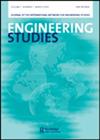Accident Causation Models: The Good the Bad and the Ugly
IF 1.3
3区 工程技术
Q2 EDUCATION, SCIENTIFIC DISCIPLINES
引用次数: 1
Abstract
The main aim of this paper is to evaluate the evolution of Accident Causation Models (ACMs) from the perspective of philosophy of science. I use insights from philosophy of science to provide an epistemological analysis of the ways in which engineering scientists judge the value of different types of ACMs and to offer normative reflection on these judgements. I review three widespread ACMs and clarify their epistemic value: sequential models, epidemiological models, and systemic models. I first consider how they produce and ensure safety (‘usefulness’) relative to each other. This is evaluated in terms of the ability of models to afford a larger set of relevant counterfactual inferences. I take relevant inferences to be ones that provide safety (re)design information or suggest countermeasures (safety-design-interventions). I argue that systemic models are superior at providing said safety information. They achieve this, in part, by representing non-linear causal relationships. The second issue is whether we should retire linear and epidemiological models. I argue negatively. If the goal is to assign blame, linear models are better candidates. The reason is that they can provide semantic simplicity. Similarly, epidemiological models are better suited for the goal of audience communication because they can provide cognitive salience.事故因果模型:好的、坏的和丑陋的
本文的主要目的是从科学哲学的角度评价事故因果模型的演变。我利用科学哲学的见解,对工程科学家判断不同类型ACM价值的方式进行认识论分析,并对这些判断进行规范性反思。我回顾了三种广泛存在的ACM,并阐明了它们的认识价值:序列模型、流行病学模型和系统模型。我首先考虑他们如何生产和确保彼此之间的安全。这是根据模型提供更大一组相关反事实推断的能力来评估的。我认为相关推论是提供安全(重新)设计信息或提出对策(安全设计干预措施)的推论。我认为系统模型在提供上述安全信息方面更为优越。它们在一定程度上通过表示非线性因果关系来实现这一点。第二个问题是我们是否应该取消线性和流行病学模型。我持否定态度。如果目标是推卸责任,线性模型是更好的候选者。原因是它们可以提供语义上的简单性。同样,流行病学模型更适合受众沟通的目标,因为它们可以提供认知显著性。
本文章由计算机程序翻译,如有差异,请以英文原文为准。
求助全文
约1分钟内获得全文
求助全文
来源期刊

Engineering Studies
ENGINEERING, MULTIDISCIPLINARY-HISTORY & PHILOSOPHY OF SCIENCE
CiteScore
3.60
自引率
17.60%
发文量
12
审稿时长
>12 weeks
期刊介绍:
Engineering Studies is an interdisciplinary, international journal devoted to the scholarly study of engineers and engineering. Its mission is threefold:
1. to advance critical analysis in historical, social, cultural, political, philosophical, rhetorical, and organizational studies of engineers and engineering;
2. to help build and serve diverse communities of researchers interested in engineering studies;
3. to link scholarly work in engineering studies with broader discussions and debates about engineering education, research, practice, policy, and representation.
The editors of Engineering Studies are interested in papers that consider the following questions:
• How does this paper enhance critical understanding of engineers or engineering?
• What are the relationships among the technical and nontechnical dimensions of engineering practices, and how do these relationships change over time and from place to place?
 求助内容:
求助内容: 应助结果提醒方式:
应助结果提醒方式:


